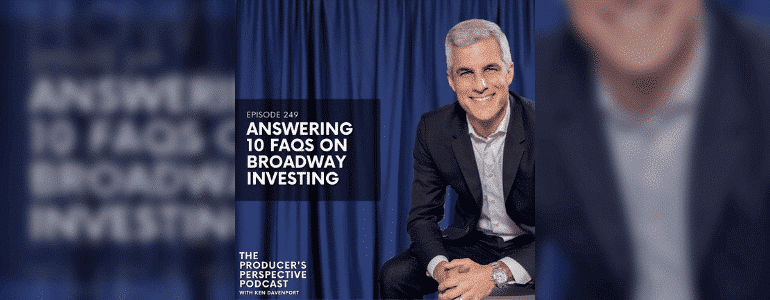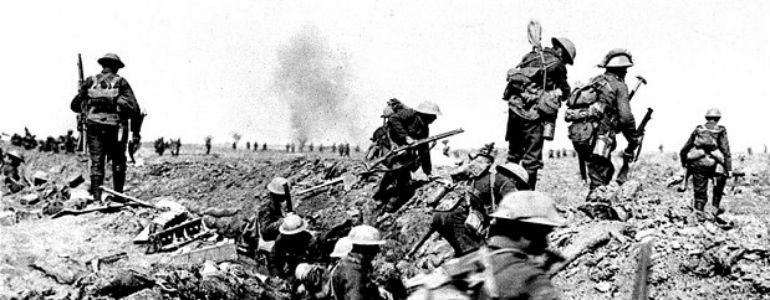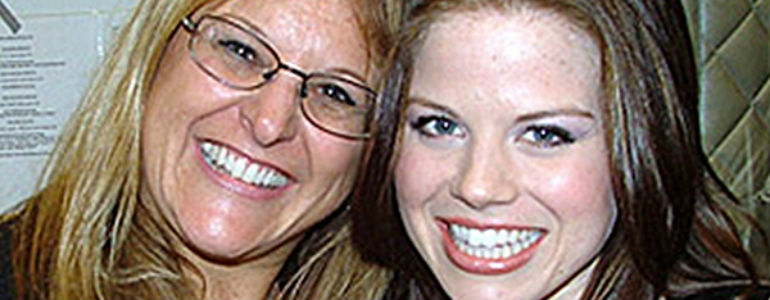10 Questions for a Broadway Pro: The keeper of the books.
I first met Sarah Galbraith when I was Company Managing Thoroughly Modern Millie. She was the Bookkeeper on the show, and we hit it off instantly. (Bookkeepers are the go-between with shows and accountants, auditing weekly figures and bills and prepping the “books” for financial statements, audits, taxes, etc.) She taught me a lot about accounting for shows, so when I was looking for someone to help me with The Awesome 80s Prom (my first show), she was the first person I called. She helped get that show off the ground, and I’ve taken her with me to all my shows since.
What’s great about Sarah is that (as you’ll read below), she doesn’t just crunch numbers. She was a CM herself, so her knowledge of the industry goes beyond taxes and benefits and such. She could literally remind you which unions got which holiday pay and which didn’t. So, when the industry desperately needed a new payroll service designed solely for our unique needs, Sarah was the perfect person to head up the business.
Here for your reading pleasure, are 10 Qs with Sarah Galbraith!
1. What is your title?
Owner and President of Galbraith & Company Inc., and Checks and Balances Payroll, Inc.
2. What shows are you currently working on?
Galbraith & Company provides bookkeeping services for commercial productions and other theater-related entities. At the moment, we are represented on Broadway by Evita, Godspell, Nice Work If You Can Get It, Clybourne Park, Rock of Ages, Ghost, and Venus in Fur; Off-Broadway by Avenue Q, Rent, Cock, and The Fantasticks; and on the road by West Side Story, American Idiot, Memphis and Fela. We work on about 20 shows at any time.
Checks and Balances provides payroll services to about 30 shows and companies at the moment, including Wicked, Peter and the Starcatcher, Evita, Godspell, Bring It On, Stomp, and Traces, to name a few.
3. In one sentence, describe your job.
I have two jobs; do I get two sentences? I and my staff act as part of a show’s management team, keeping the books and providing financial reporting to managers and producers. For the payroll service, I work with and supervise the staff that processes the weekly payrolls for our clients, and I handle all of the quarterly and annual payroll tax filings.
4. What skills are necessary for a person in your position?
You have to be good with numbers. After that, attention to detail, and a good memory. There are no manuals for what I do; it’s all about experience and knowing the tax laws for the various states and countries where our shows perform.
5. What kind of training did you go through to get to your position?
I have an MFA from Columbia University in Theater Management, which was a great start. I went through the ATPAM apprentice program and survived the dreaded test to get my ATPAM card. Most of my practical training has been on the job working for producers, general managers and a public accounting firm. I’ve had my own company for 6 years and I still learn something new every week.
6. What was your first job in theatre?
My first paid job was as an electrician and follow spot operator for the Goodspeed Opera House. We got housing and a stipend, and dinner on two-show days. When you’re 16, that’s pretty good.
7. Why do you think theater is important?
Theater is a primal human activity. One of the first things our ancient ancestors did was gather together to sit in the dark and hear a story. It’s how we know who we are, as a society and as individuals.
8. What is your profession’s greatest challenge today?
More and more tax rules. Every year there are new taxes, more states that require filings, more rules governing compliance. Nothing ever gets less complicated, and our job is to make sure the production is meeting its obligations and no one is going to get a fine or a nasty letter from the IRS.
9. If you could change just one thing about the industry with the wave of a magic wand, what would it be?
I love the history and tradition of the Broadway theater, but I think Broadway is at its best when it embraces new things and looks forward. Whether in artistic choices, marketing, business, or technology, it is exciting to me to see fresh ideas in the theater, and I wish I saw more of them.
10. What advice would you give to someone who wanted to do what you do?
Learn everything you can about every part of the business. Knowing accounting and taxes is crucial, but it’s not the only thing. You have to know the union contracts, understand the budgeting process, know royalty structures, and be familiar with the key contracts that govern the finances of a show. To be able to be a valuable part of the team, and truly support the process, you have to see and understand the whole life of the production.
(Got a comment? I love ‘em, so comment below! Email subscribers, click here then scroll down, to say what’s on your mind!)
——
FUN STUFF:
– Win 2 Tickets to New Mondays at the new hotspot, 54 Below. Click here to enter!
– LA “Get Your Show Off the Ground” Seminar announced! Click here for info.
– Win an iPad in our Tony Award Pool! Click here to play!
Podcasting
Ken created one of the first Broadway podcasts, recording over 250 episodes over 7 years. It features interviews with A-listers in the theater about how they “made it”, including 2 Pulitzer Prize Winners, 7 Academy Award Winners and 76 Tony Award winners. Notable guests include Pasek & Paul, Kenny Leon, Lynn Ahrens and more.















